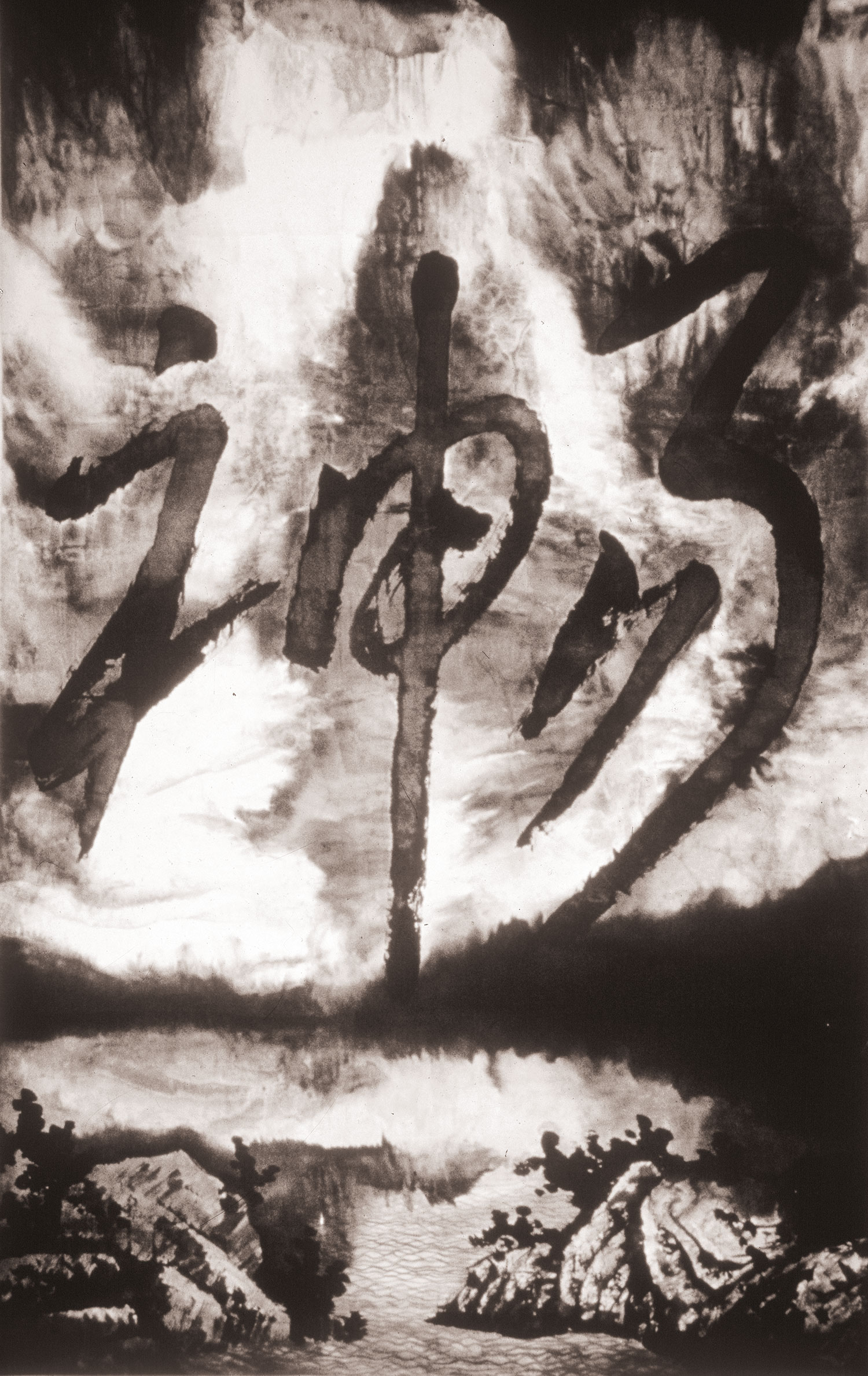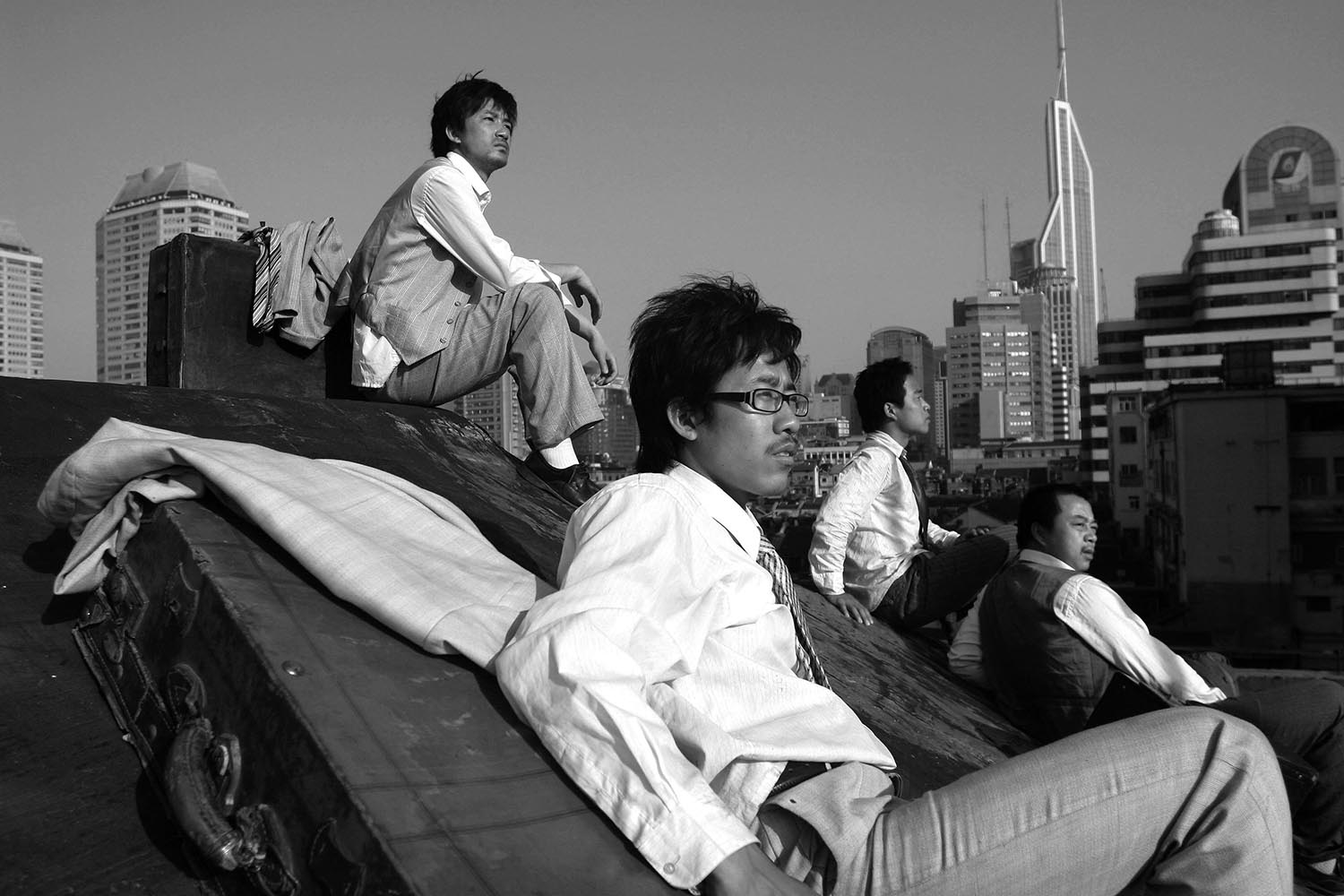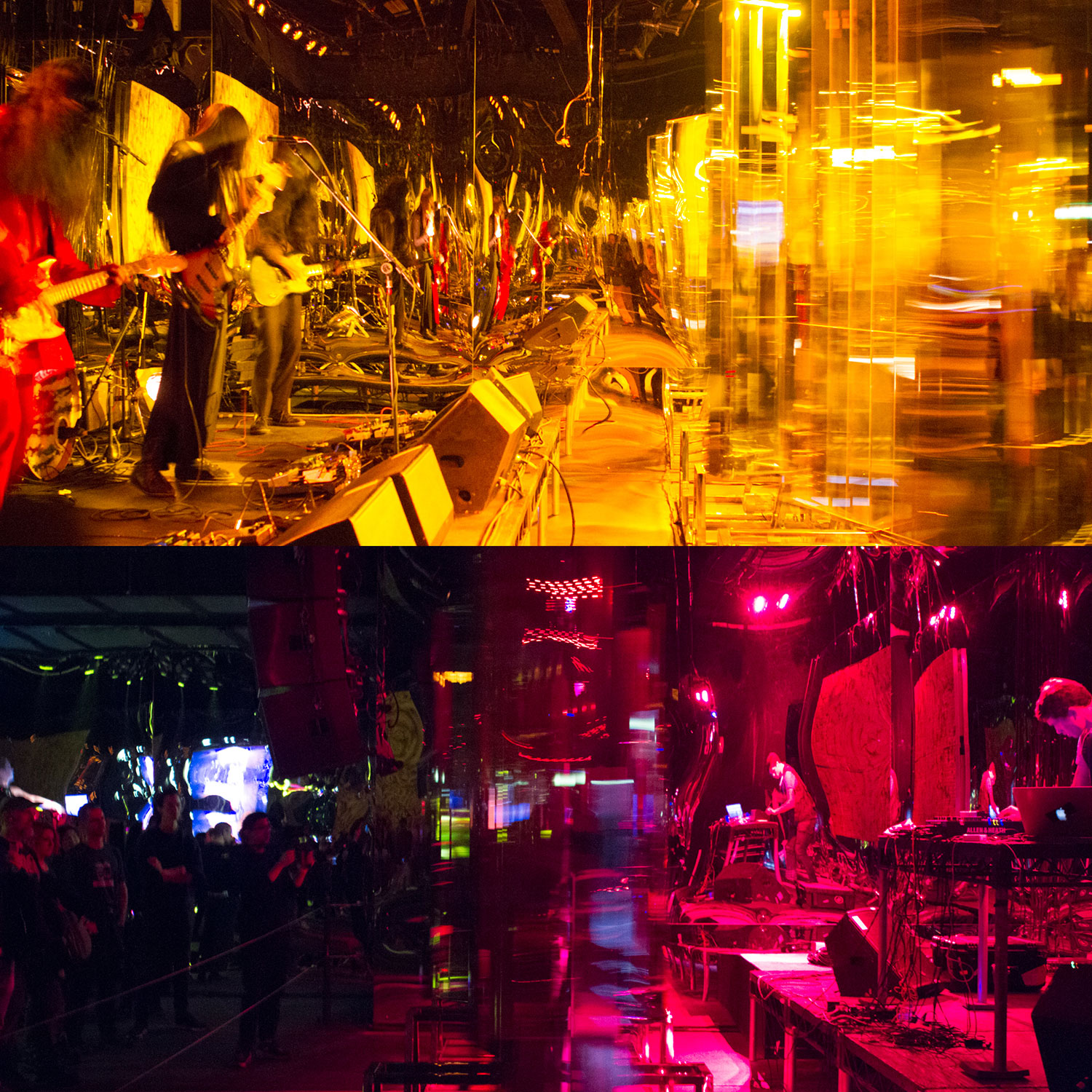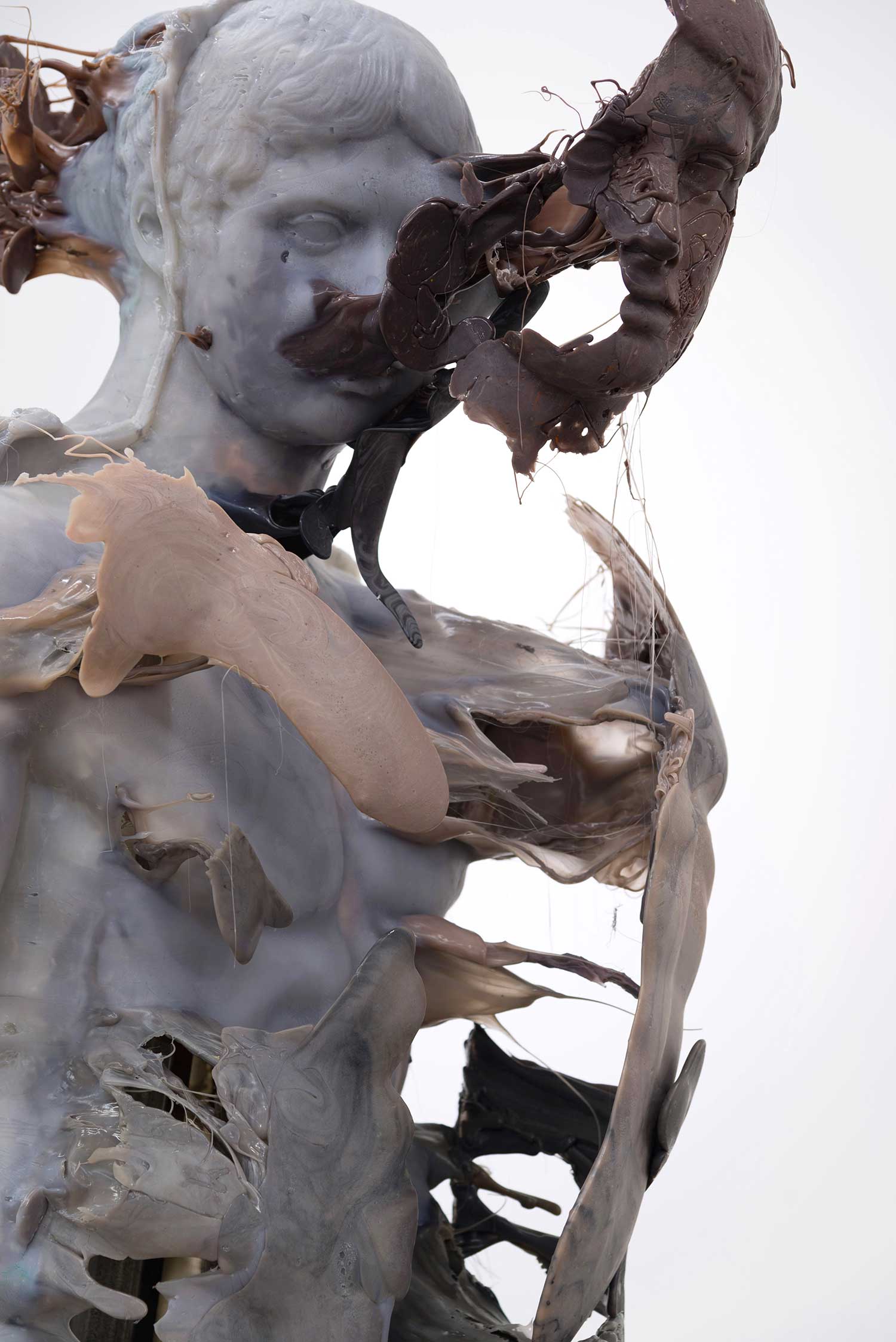是金子总会发光
有位艺术创作者,在创作道路上坎坷,苦苦追求艺术之路但总被拒之千里。每次他拿着自己满意的新作被泼冷水,回到家的时候,他的妻子总是对他说,“没关系,是金子总是会发光的。” 几十年过去,妻子也去世了,孤独的他默默无闻,站在昏暗的工作室中,心里还是默念 “是金子总是会发光的。” 等他也去世的时候,被送去火化,一股黑色的烟上升到空中,烧剩下的是一副黄金的骨架。
If It Is Gold, It Will Always Shine
There was an art maker who had hit an impasse on his creative journey. He was in bitter pursuit of the artistic path, but it always thwarted him by a distance of a thousand miles. Every time he came forward with a new piece of work he was happy with, his hopes were dashed by rejection. Upon returning home, his wife would always comfort him: “Don’t worry. If it is gold, it will always shine.” Several decades passed, and, his wife long since deceased, he was left all alone, isolated and completely unknown to the public. But for as long as he stood in his dark studio, his heart never stopped its silent recitation: “If it is gold, it will always shine.” When he died and his body was cremated, a surge of black smoke rose up into the air. All that was left behind was a golden skeleton.
水晶骷髅
上海的海边,退潮时一望无际的滩涂,有个穷困潦倒的青年晚饭后总去海边散步,夏天傍晚,他独自坐在一块大石头上乘凉,石头突然动了,里面有个声音说:“谁敢坐在我头上?” 他吓了一跳仔细一看,原来是个巨大的蚌,他连忙说:“对不起,我以为是块石头,失礼了!” 蚌说:“没关系我不会害你,但是你绝对不能告诉别人我在这里,我送你件宝物,你收了就当答应我了。” 青年连忙说好。蚌慢慢打开,伸出一节很长很长的肉,从肉里吐出一个人头大的闪闪发光的宝物,青年高兴坏了,抱着宝物连声道谢离开了。
青年拿着宝物仔细端详,是个晶莹剔透的水晶骷髅,夜里会发出幽蓝的光,绝对价值连城。青年拿去给别人看,众人惊叹世间竟有如此精美绝伦的艺术品,有人就出高价购买。青年好赌成性,卖了这宝物后,拿去充当赌资混了好一阵,一个月后又穷困潦倒了。
他又来到海边,和蚌说:“上次你给我的东西我弄丢了,现在都快揭不开锅过日子了,能不能再给我一件,我一定遵守诺言保密,如果不给,我不敢保证自己会不会说出去……” 蚌许久不动,青年再三恳求,蚌又慢慢打开壳,伸出长长的肉,吐出一个一模一样的水晶骷髅。青年磕头致谢,拿着宝物离开了。
这次还是一样,他卖掉了这水晶骷髅,拿着钱得意了好一阵。这时他有个朋友就找上门来,问:“你这东西哪里得到的?也让兄弟我发发财啊!” 他说:“我答应过不能说。” 他朋友各种恳求,家中设宴请他喝酒,喝醉后,青年半醉半醒说出了宝物的来历和遇见蚌的地方。
一个星期后,青年又在赌场输了一大把,欠债被逼无奈,再次来到海边找蚌,他说:“我实在欠人钱财无数,被逼只能前来求你,再不还钱我只能逃亡了。” 这时 蚌慢慢又打开了,青年期盼地看着蚌里的肉伴随黏液伸出来长长一节,只是这次,吐出的是他朋友的尸体。
Crystal Skulls
At the seaside in Shanghai, at low tide, on a stretch of beach as far as the eye could see, a poor, destitute young man would take his evening walks. At dusk one Summer night he was sitting alone on a boulder, enjoying its coolness. Suddenly the giant rock moved. From within it came a voice that rumbled: “Who dares sit on my head?” Startled, the youth looked down and saw this was not a boulder but a huge mussel. He jumped up and apologized: “Sorry, I thought you were a rock, excuse my rudeness!” The mussel replied: “It’s ok, I won’t harm you. But you must not tell anyone else I’m here. I’ll give you a treasure in exchange for your promise.” The youth quickly consented. Slowly, the mussel opened its shell and extended a long piece of flesh, spitting out a shining object about the size of a human head. The youth was thrilled. Grasping the treasure, he profusely thanked the mussel and left.
The youth examined the treasure in his hands: it was a sparkling, beautifully chiseled crystal skull. At night, it radiated with a blue glow. It was absolutely priceless. The youth took it to show other people, and everyone marveled that something like this could possibly exist in the world. One person shelled out a very high price to buy it. The youth, addicted to gambling, sold the skull and used the money to gamble. He lost it all. A month later, he was poor and destitute again.
The youth came back to the seaside and said to the mussel: “I lost the thing you gave me last time, could you give me another? If you do, I will definitely keep my promise and keep your secret. If you don’t, I can’t guarantee I won’t speak out…” The mussel stayed motionless for a while. The youth implored him. At last, the mussel slowly opened its shell, stretching out its long fleshy limb and spiting out an identical crystal skull. The youth bowed his head in thanks, and ran off with the new treasure.
This time was the same as the last. He sold the crystal skull and proudly flaunted his money. A friend came to his door and asked: “Where did you get that thing? How about helping a brother make a fortune too?” “I promised I wouldn’t tell,” replied the youth. But his friend pushed and pushed, inviting the youth to his home to drink. The youth, half-asleep and in a drunken stupor, at last disclosed to his friend the story of the treasure and the place where he met the mussel.
A week later, the youth went back to the casino and lost a huge sum of money. Having run himself into debt, he was forced to come once more to the seaside to find the mussel. “I owe people so much money. I had to come back and find you. If I don’t pay them back I will have to flee home.” The mussel slowly opened its shell and the youth leaned forward to watch as the fleshy limb outstretched with the crystal skull. But this time, it spit out the corpse of his friend.
艺王庙
有个艺术家梦到自己走进一座很大的庙,庙里坐着一排佛像,仔细看这些佛像,都是毕加索,莫奈,达利,博伊斯这些大艺术家,前面放了张桌子,桌子上有本书,叫《未来三百年艺术史》,艺术家迫不及待地去翻查里面有没有他,翻了半天发现没有,很沮丧,这些大艺术家嘻嘻哈哈地笑着说:“没关系,这里面没有很正常,你可以去边上那个庙看看,他们管地区的。” 这个艺术家离开了,来到边上一个稍微小点的庙,庙里也坐着一排佛像,仔细一看,都是齐白石,张大千,徐悲鸿,黄宾虹这些大艺术家,前面桌子上也有本书,叫《中国未来三百年艺术史》,艺术家迫不及待地去翻查里面有没有他,翻了半天也没有,这些艺术家也笑嘻嘻地说:“这里面没有很正常,这儿也不是一般人能进来的,你要是不死心,可以去外面路口一个小庙看看。” 于是他离开了这个庙,走到路口,在草丛后面看见一个半人多高的小庙,低下头去看,好像里面坐着个很小的佛,他就弯腰钻进去,一看,就是他自己。
Temples of Art Kings
There was an artist who dreamed one night of walking into a big temple. Inside this temple was a row of Buddha statues that, when he looked more closely, turned out to be the world’s great artists: Picasso, Monet, Dalí and Beuys. All of these artists stood before a table, and on the table was a book titled The Next Three Hundred Years of Art History. The artist could not wait to check the book, to see whether or not he was mentioned. He searched and searched, flipping through its pages, and became dejected when he realized he was not there. The great artists laughed and said, smiling: “Never mind that, things here don’t represent the norm. Go to that other temple at the border and maybe you’ll be mentioned. They manage the whole region over there.” So the artist left, and when he got to this new, slightly smaller temple at the edge of town, he found inside another row of statues that, it turned out, were actually China’s master artists Qi Baishi, Zhang Daqian, Xu Beihong and Huang Binhong. In front of them was also a table, and on this table was a book called The Next Three Hundred Years of Chinese Art History. Again, the artist could not wait to check whether or not he was mentioned. He flipped through the book for hours, only to realize he was not in this one either. The Chinese artists laughed and said to him: “What’s in there isn’t representative of the norm, and it’s not the average person who even comes to this place. If you haven’t given up yet, you could go to that other small temple at the crossroads and have a look.” So the artist left the temple and went to the crossroads. There, through a thicket, he spotted a small temple standing at about half human height. When he bowed his head to have a look, he glimpsed a small statue. He bent all the way down, stuck his head inside the temple, and looked up: the statue was him.




